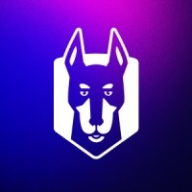

Snyk and Perium offer competing solutions in the vulnerability management and DevSecOps space. While Perium provides an advanced feature set, Snyk stands out with competitive pricing and ease of integration.
Features: Snyk provides open-source vulnerability detection, integration capabilities, and automated fix suggestions. Perium offers advanced threat intelligence, robust policy management, and customization options, delivering deeper security insights.
Ease of Deployment and Customer Service: Snyk integrates easily with CI/CD pipelines and offers responsive support for seamless deployment and management. Perium has a more complex deployment but provides detailed documentation and customizable support for tailored solutions.
Pricing and ROI: Snyk features attractive pricing aimed at quick ROI through effective risk mitigation. Perium, while typically higher in price, justifies costs with extensive capabilities and long-term benefits.
| Product | Market Share (%) |
|---|---|
| Snyk | 2.3% |
| Perium | 0.4% |
| Other | 97.3% |

| Company Size | Count |
|---|---|
| Small Business | 21 |
| Midsize Enterprise | 9 |
| Large Enterprise | 21 |
Perium is a sophisticated technology designed to cater to advanced operational requirements, offering critical tools to ensure enhanced performance and strategic insights for businesses. Its capabilities address specific needs through adaptable solutions.
Perium provides a comprehensive framework that integrates seamlessly into existing infrastructures, adapting to diverse business processes. This advanced platform delivers strategic advantages by streamlining operations while enhancing decision-making efficiency. Businesses using Perium benefit from its ability to adapt quickly, ensuring they remain competitive in shifting markets. It empowers users to draw valuable insights, promoting sustainable growth and operational agility.
What are the key features of Perium?In industries such as finance, healthcare, and manufacturing, Perium is implemented to tackle specific challenges by enhancing data transparency and operational efficiency. Financial firms leverage real-time analytics to improve decision-making. Healthcare providers use data integration for patient management. Manufacturing businesses employ customizable dashboards for process monitoring, ensuring adherence to production standards while reducing downtime. This adaptability makes Perium valuable across multiple disciplines.
Snyk excels in integrating security within the development lifecycle, providing teams with an AI Trust Platform that combines speed with security efficiency, ensuring robust AI application development.
Snyk empowers developers with AI-ready engines offering broad coverage, accuracy, and speed essential for modern development. With AI-powered visibility and security, Snyk allows proactive threat prevention and swift threat remediation. The platform supports shifts toward LLM engineering and AI code analysis, enhancing security and development productivity. Snyk collaborates with GenAI coding assistants for improved productivity and AI application threat management. Platform extensibility supports evolving standards with API access and native integrations, ensuring comprehensive and seamless security embedding in development tools.
What are Snyk's standout features?Industries leverage Snyk for security in CI/CD pipelines by automating checks for dependency vulnerabilities and managing open-source licenses. Its Docker and Kubernetes scanning capabilities enhance container security, supporting a proactive security approach. Integrations with platforms like GitHub and Azure DevOps optimize implementation across diverse software environments.
We monitor all GRC reviews to prevent fraudulent reviews and keep review quality high. We do not post reviews by company employees or direct competitors. We validate each review for authenticity via cross-reference with LinkedIn, and personal follow-up with the reviewer when necessary.